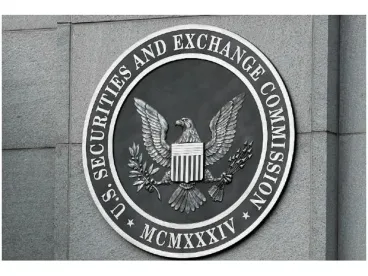As we roll into a new year and a new public company reporting season, public companies should be aware of a number of rule changes and rulemakings, Securities and Exchange Commission (SEC) staff guidance, disclosure trends and emerging best practices relating to corporate governance, executive compensation, proxy access, shareholder engagement and other topics. This 2016 Proxy Season Checklist discusses developments that will affect the upcoming and future proxy seasons, and offers suggestions on how to prepare for them.
Corporate Governance
-
Consider expanding proxy statement disclosures concerning audit committees in light of the SEC’s concept release, issued in July, on possible revisions to current audit committee disclosure requirements. The concept release suggests expanded reporting by the audit committee of its responsibilities with respect to the selection and oversight of the company’s indepen¬dent auditors.
-
Review the recently released NYSE compliance guidance memo highlighting recent changes to the Listed Company Manual and other existing NYSE rules that often get overlooked.
-
Double-check your company’s director and officer (D&O) questionnaires to ensure that they are designed to elicit the information that you need for both disclosure purposes as well as to allow your auditors to complete their audit of your financial statements. For example, many companies are considering changes to their questionnaires in response to new Auditing Standard 18 and the Supreme Court’s decision on same sex marriage and relationships with compensation advisors.
-
The Public Company Accounting Oversight Board (PCAOB) adopted Auditing Standard 18, which requires independent auditors to evaluate a company’s identification of, and accounting for, related party transactions, became effective for audits of fiscal years beginning on or after December 15, 2014.
-
Ensure D&O questionnaires, Section 16 reports, and related party transactions reporting procedures take into account the SEC’s same-sex marriage interpretive guidance, issued this year in response to the Supreme Court’s ruling in United States v. Windsor. The SEC will interpret the terms “marriage” and “spouse” where they appear in securities laws and regulations to include same sex marriages and an individual married person to a person of the same sex, respectively.
-
Confirm that D&O questionnaires contain questions that solicit information regarding business and personal relationships between compensation consultants and executive officers or directors. Alternatively, ensure that there is a separate process in place to solicit the information. This information about compensation consultants is necessary in order to conduct independence assessments and to comply with reporting obligations under NYSE and Nasdaq listing standards as well as Item 407(e) of Regulation S-K.
-
-
Remember that Section 13(r) of the Exchange Act is still in effect, notwithstanding the advancements in U.S.-Iran diplomatic relations. As a result, the “Iran disclosure” required under Section 13(r) pursuant to the Iran Threat Reduction and Syria Human Rights Act of 2012 is still required. Section 13(r) requires public companies (and their “affiliates”) to disclose certain activities, transactions or dealings related to Iran in annual reports on Form 10-K and quarterly reports on Form 10-Q. The extension of the rule to “affiliates” has led some companies to include Iran-related questions in D&O or similar questionnaires for the company’s directors and executive officers.
Director and Executive Compensation
-
Remember to seek shareholder approval for new stock incentive plans or material changes to an existing plan. Consider including a new provision to limit the size of awards to non-employee directors in new or amended equity incentive plans. In recent litigation, including Calma v. Templeton and Seinfeld v. Slager, the Delaware Chancery Court refused to apply the business judgment rule with respect to stock awards granted to non-employee directors under stock incentive plans that did not include a specific limit on grants to non-employee directors.
-
Is it time to seek shareholder approval of a Section 162(m) performance-based compensation plan? Shareholder approval must be obtained at least every five years. If the last shareholder vote on your company’s Section 162(m) plan was in 2011 or earlier, shareholder reapproval is required in 2016. Note that the IRS issued final regulations under Section 162(m) clarifying the maximum number of shares with respect to which stock options and SARs may be granted to an individual employee and the inapplicability of the IPO transition period to RSUs.
-
Prepare to comply with the final pay ratio disclosure rule, a Dodd-Frank Wall Street Reform and Consumer Protection Act (Dodd-Frank) mandate. The pay ratio rule was adopted by the SEC as new Item 402(u) of Regulation S-K. Beginning in 2018, public companies must disclose the ratio of the annual compensation of their CEO to the annual compensation of their median employee, and provide a brief description of the methodology used to identify the median employee. Companies should begin determining how to collect data, records and other information needed to identify its median employee. The pay ratio disclosure rule does not apply to emerging growth companies, smaller reporting companies, or foreign private issuers. Companies subject to the pay ratio rule will first be required to disclose the CEO pay ratio for the first full fiscal year beginning on or after January 1, 2017. Accordingly, most companies will be required to include the new disclosure in their proxy statements in 2018.
-
In accordance with fulfilling the additional rulemaking mandates of Dodd-Frank, the SEC has issued proposed disclosure rules on pay versus performance, clawback policies and hedging transactions, which may be finalized in 2016. No action is required until the SEC adopts final rules.
-
Pay Versus Performance. If adopted as proposed, new Item 402(v) of Regulation S-K would require a company to disclose, both in narrative and tabular form, the relationship between executive compensation and cumulative total shareholder return (TSR) and the relationship between the TSR of a company and its peer group. Smaller reporting companies would be permitted to provide scaled disclosure and would not be required to present the TSR of a peer group.
-
Clawback Policies. Companies should make sure that all of its employment agreements, compensation plans and award agreements are drafted to ensure they comply with future clawback requirements consistent with Section 954 of Dodd-Frank. The proposed new Exchange Act Rule 10D-1 directs national securities exchanges and associations to establish listing standards requiring all listed companies to adopt and implement a written policy requiring the recovery, or “clawback,” of excess incentive-based executive compensation paid to any current or former executive officer as a result of material noncompliance with financial reporting rules that results in a financial restatement. Listing standards would also require all listed companies to disclose and comply with their clawback policies.
-
Hedging Transactions. As proposed, a new Item 407(i) of Regulation S-K would require companies to disclose whether employees, officers and directors are permitted to engage in transactions to hedge or offset any decrease in the market value of equity securities granted to or held by them.
Shareholder Proposals Engagement; Institutional Shareholder Voting Policies
-
In October, the SEC Staff issued Staff Legal Bulletin No. 14H. It established a new, heightened standard for excluding a shareholder proposal under Rule 14a-(8)(i)(9), which permits a company to exclude a proposal if the proposal “directly conflicts” with one of the company’s own proposals to be submitted to shareholders at the same meeting.” Under the new standard for determining if a shareholder proposal “directly conflicts” with a company’s proposal, the SEC Staff will focus on whether a reasonable shareholder could logically vote in favor of both proposals when considering no-action requests under Rule 14a-8(i)(9). The bulletin also discusses challenges to the ordinary business exclusion under the Rule 14a-8(i)(7), including the decision from the U.S. Court of Appeals for the Third Circuit in Trinity Wall Street v. Wal-Mart Stores, Inc.
-
Review the recent SEC Staff Compliance and Disclosure Interpretations issued in October 2015 addressing unbundling of shareholder proposals under Rule 14a-4(a)(3).
-
ISS and Glass Lewis released their 2016 updates to their proxy voting guidelines. Policy changes are summarized here.
-
Additional recent ISS publications related to the upcoming proxy season include: Concise and Full Summary of Proxy Voting Guidelines, FAQs on non-compensation related U.S. Proxy Voting Policies and Procedures, FAQs on U.S. Equity Compensation Plans, FAQs related to U.S. Executive Compensation Policies, the Preliminary 2015 U.S. Postseason Review and the 2015-2016 ISS Global Policy Survey.
-
Companies may sign up for Glass Lewis’ Issuer Data Report, which enables public companies to access for free and comment on a data-only version of the Glass Lewis proxy report before Glass Lewis completes its analysis and proxy voting recommendations.
-
-
The Shareholder-Director Exchange working group released the SDX Protocol, which contains a 10-point guide for public company boards and shareholders to determine when shareholder-director engagement is appropriate and how to make these engagements valuable and effective
Other Disclosure and Reporting Topics
-
The SEC announced that it has discontinued its previous practice of uploading scanned copies of “glossy” annual reports to EDGAR. Remember to mail copies of your company’s glossy annual report to the SEC and post it on a non-SEC website.
-
The New York Stock Exchange’s amended material news release rules in Section 202.06 of the Listed Company Manual became effective in September 2015. These rules require NYSE-listed companies to notify the NYSE at least 10 minutes prior to releasing news between the hours of 7 a.m. and 4 p.m. EST, clarify that companies should issue news in a Form 8-K (or other SEC filing) or in a press release to major news wire services, and expand authority for the NYSE to halt trading.
-
The disclosures required on Form SD, which identifies conflict minerals contained in company products, are still the subject of litigation. In August 2015, the U.S. Court of Appeals for the D.C. Circuit affirmed its prior decision that companies were not required to disclose in the Form SD whether their products were "DRC conflict free" or "not been found to be ‘DRC conflict free’”. Unless the SEC issues guidance prior to the Form SD filing deadline in May 2016, an independent private sector audit of a conflicts mineral report will not be required as long as an issuer does not voluntarily elect to describe its products as conflict fee. We recommend that companies continue their diligence efforts on the sources of conflict minerals contained in their products and be in a position to obtain an independent audit in the event that the SEC updates its guidance to require audits of conflict minerals reports.
-
Remember to adequately disclose cybersecurity risks and breaches. Disclosure Guidance: Topic No. 2 issued by the Division of Corporate Finance in 2011, addresses how existing disclosure regulations require disclosure of cybersecurity issues. The Division of Investment Management released cybersecurity guidance in April 2015 on a number of measures that registered investment companies and advisers may want to consider when addressing cybersecurity risks.








 />i
/>i

